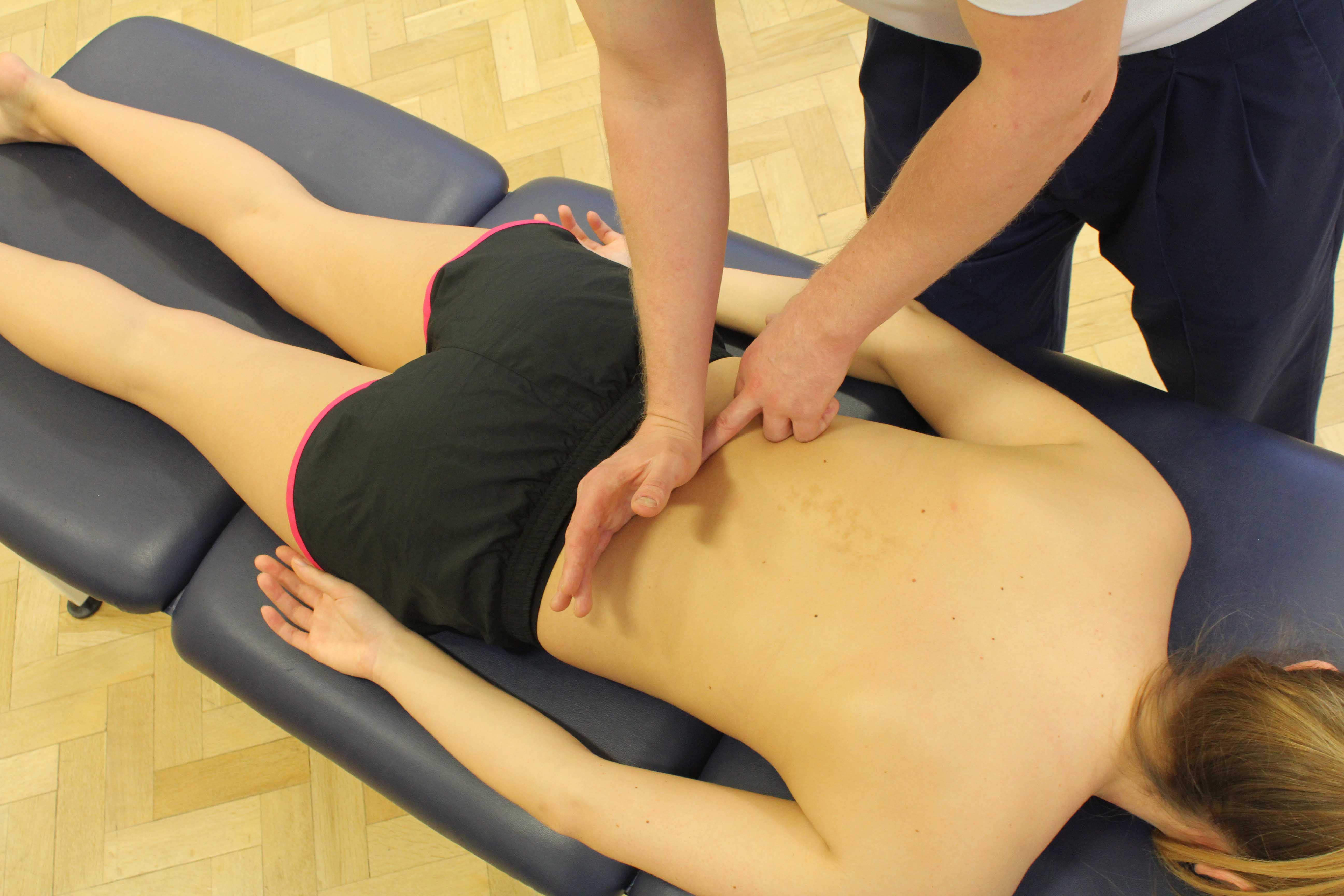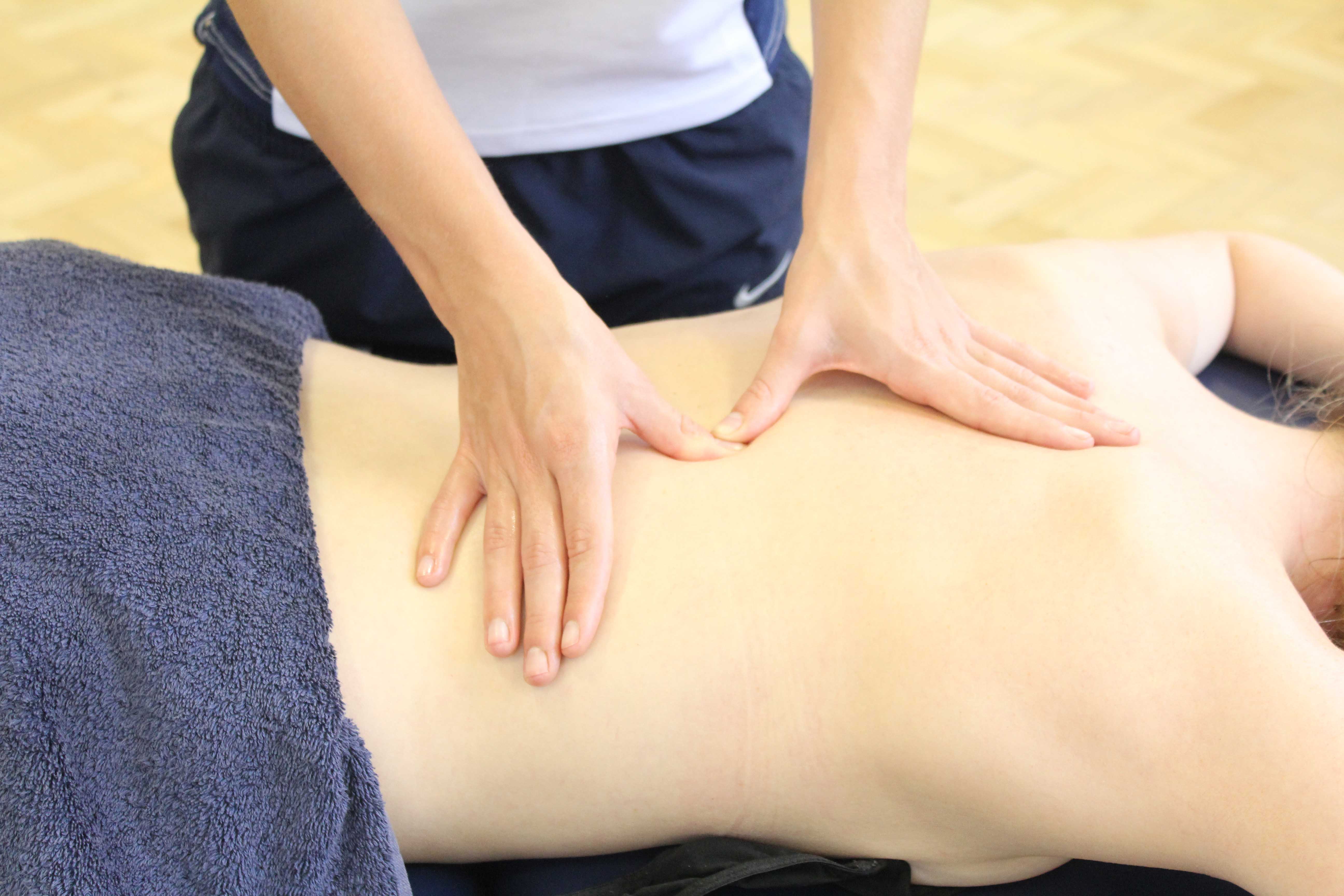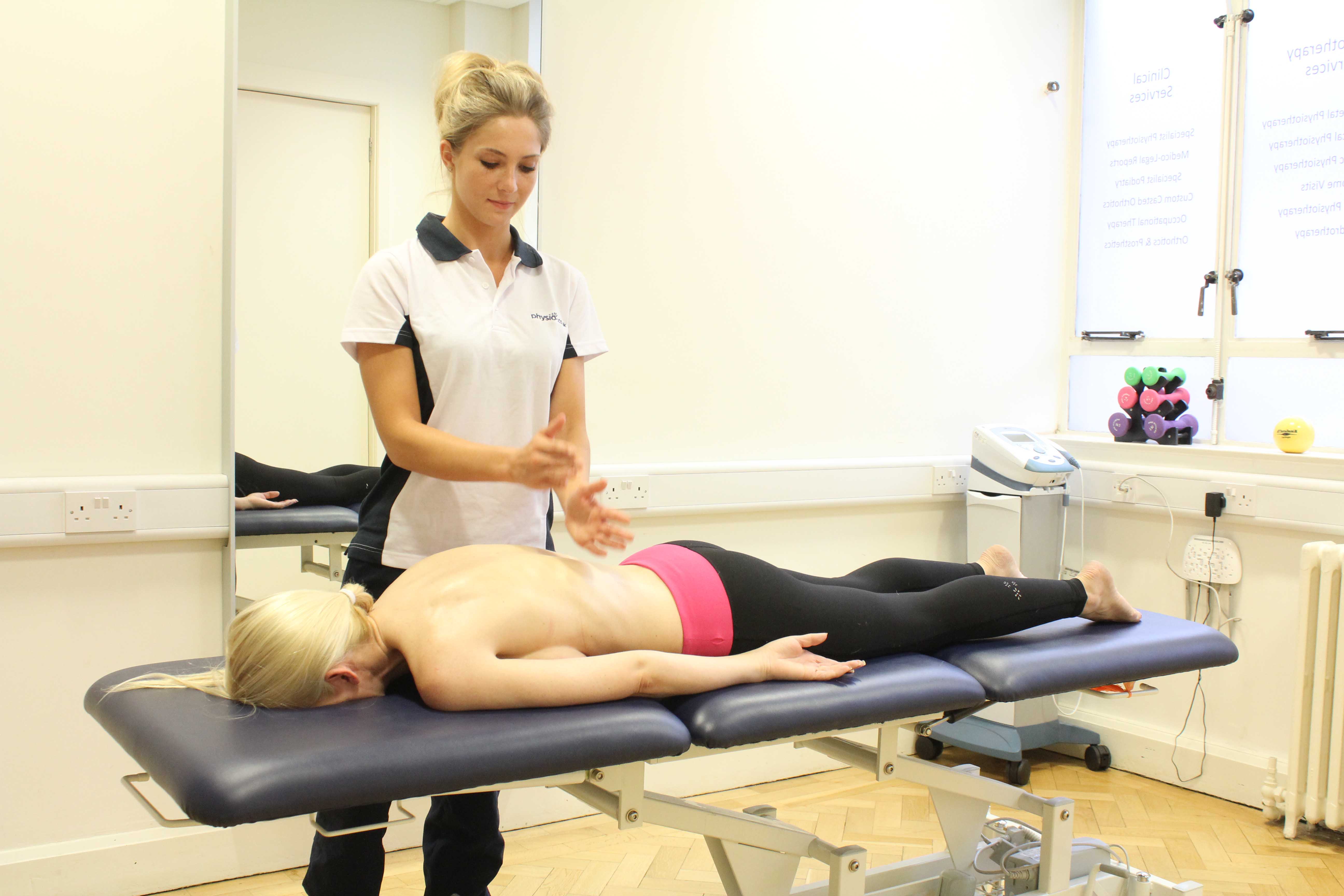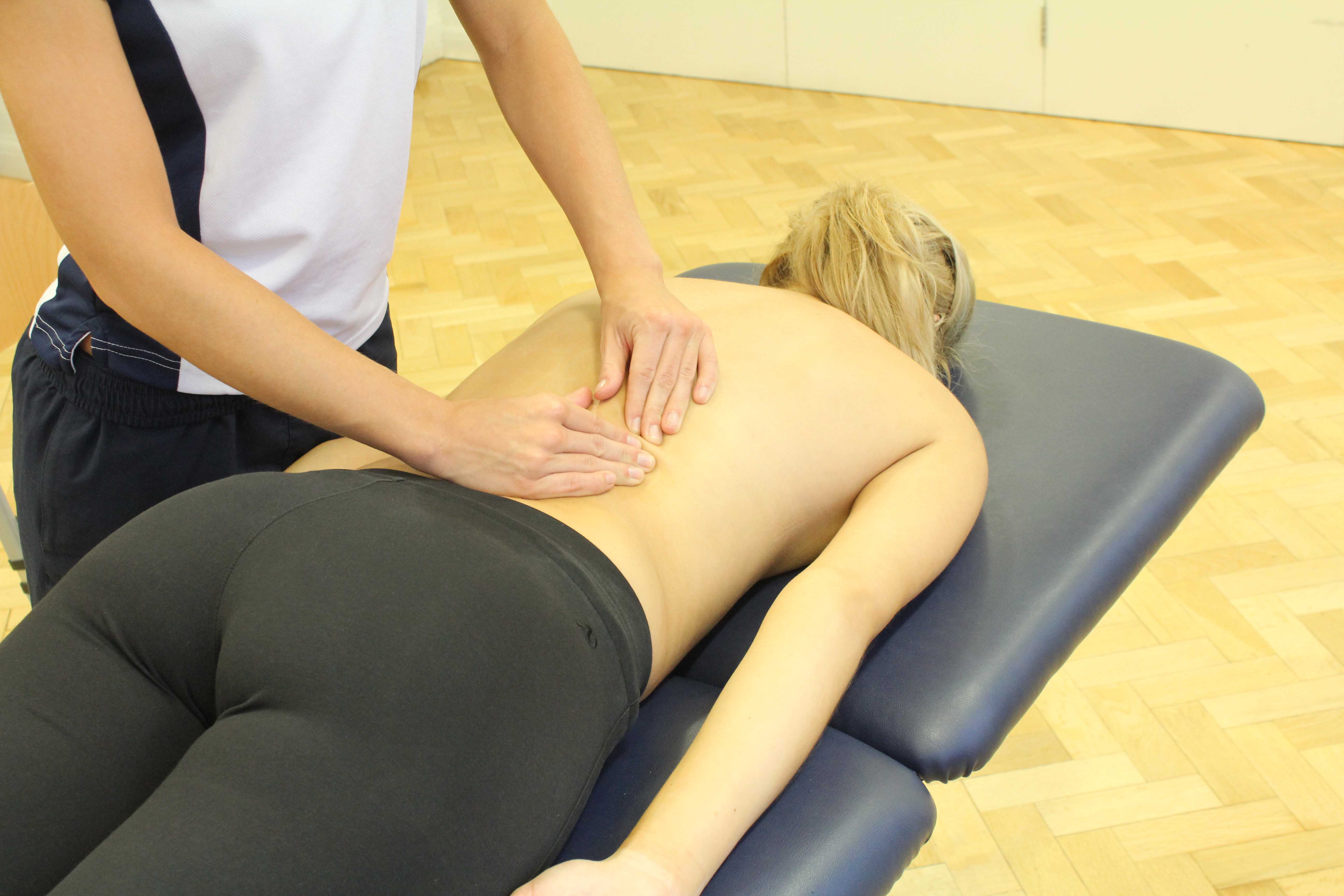What is a fractured vertebra?
A fractured vertebra is a fracture to one or more of the seven bones (vertebrae) in the neck. A fracture to one or more vertebrae is very serious injury. A broken neck does not necessarily mean that the spinal cord has been damaged or injured. A physiotherapy programme should be followed as soon as possible to maximise your potential.
 Above: Passive stretch of trapezius muscle by experienced physiotherapist
Above: Passive stretch of trapezius muscle by experienced physiotherapistWhat can cause a fractured vertebra?
A fractured vertebra is normally caused by severe trauma to the neck or head. This can occur in numerous ways including; road traffic accidents, falls and sporting injuries.
What are the symptoms of a fractured vertebra?
The symptoms of a fractured vertebra vary depending on the extent of the damage. Common symptoms include:
- reduced range of movement
- swelling/inflamation
- stiffness
- weakness
- numbness
- spasm
- tingling / pins and needles
 Above: Mobilisations of the cervical vertebrea to reduce stiffness and any nerve impingement
Above: Mobilisations of the cervical vertebrea to reduce stiffness and any nerve impingementWhat should I do if I have a fractured vertebra?
A fractured vertebra is a very serious condition. If you suspect that you have a fractured vertebra you should attend an accident and emergency department as a matter of urgency.
Medical management of a fractured vertebra.
Following X rays and CT scans an experienced medical professional will decide whether the fracture is stable or unstable. An unstable fracture will normally be immobilised in a hard neck brace or ‘halo’ brace for at least six weeks, as the position of the fragments of broken vertebrae could be dislodged with movement. If the vertebra was dislodged there is a chance that your spinal cord could be damaged. In some cases surgery will be performed. If the fracture is deemed stable you will be allowed to move the neck gently, as pain allows.
 Above: Soft tissue massage of the muscle and connective tissues in the neck by specialist MSK therapist
Above: Soft tissue massage of the muscle and connective tissues in the neck by specialist MSK therapistPhysiotherapy for a fractured vertebra.
Your orthopaedic consultant will be able to advise you when you are able to start physiotherapy. The aims of physiotherapy will be to reduce your pain and stiffness, improve your patterns of movement and increase your tolerances to everyday activities. The long term goals will be to allow you to return to your previous level of activity. Physiotherapy will be largely exercise based and you will be given an exercise programme to follow at home in between physiotherapy treatment sessions. Other treatment may include: To arrange a physiotherapy appointment call Physio.co.uk on 0330 088 7800 or book online today.
 Above: Mobilisations of the vertebrea in the cervical spine to reduce pain and stiffness
Above: Mobilisations of the vertebrea in the cervical spine to reduce pain and stiffnessCan a fractured vertebra have any long-term effects?
Many vertebral fractures heal without complication with sufficient rehabilitation. However, some fractures can result in longer-term effects, dependent on the severity of the injury.

 0330 088 7800
0330 088 7800


































